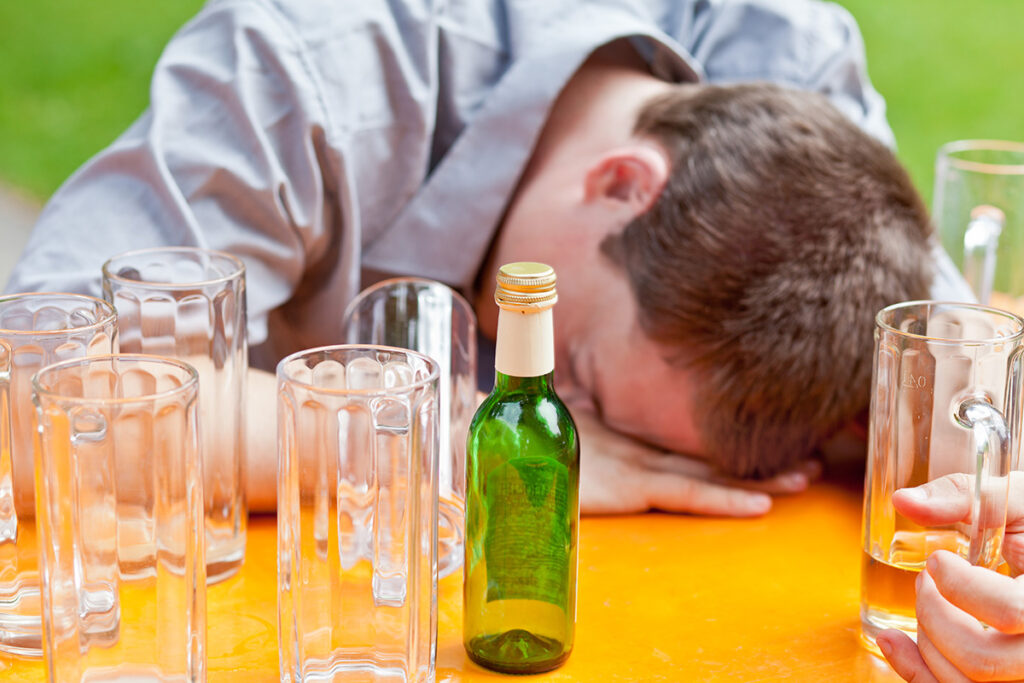At Foothills at Red Oak Recovery in Ellenboro, NC, we proudly serve young men ages 14 to 17. Our services include compassionate recovery for alcohol and drug abuse disorders as well as mental health disorders. Educating our clients and providing them with coping skills are the most important missions we have. To that end, this article answers the question, “What is binge drinking?” and explores the consequences of this dangerous habit.
What is Binge Drinking?
According to the National Institute on Alcohol Abuse and Alcoholism (NIAAA), binge drinking raises blood alcohol concentration (BAC) to 0.08% or higher. It also involves drinking excessively in a short period of time. For women, this means four drinks within two hours. For men, its five drinks in two hours.
The number of drinks that classify as binge drinking varies from person to person, based on metabolism, weight, and size. For smaller people, the number might be 2- 3 drinks or less.
What is Binge Drinking and Why is it Dangerous?
Now that you can answer the question, “What is binge drinking?”, it’s also important to know the consequences of doing so. A BAC of 0.08% typically produces problems with the following:
- Impulse control
- Motor coordination
- Judgment
- Necessary inhibitions
Consider some sobering facts about binge drinking.
What is Binge Drinking’s Impact?
Another way to another the question “What is binge drinking?” involves looking at the consequences it produces.
According to the CDC, binge drinking is associated with many health and wellness issues, including:
- Car crashes, burns falls, and alcohol poisoning
- Violence such as domestic violence, homicide, suicide, and sexual assault
- Contraction of sexually transmitted diseases
- Unintended pregnancy
- Fetal alcohol syndrome
- High blood pressure, heart disease, stroke, and liver disease.
- Cancer of the mouth, throat, breast, liver, esophagus, and colon.
- Memory and learning disorders.
Binge Drinking is Preventable
Although peer pressure pushes thousands of teens into taking their first drink, it’s a bad idea. Binge drinking can start with your first drink as a minor or at any age. As a teenager, you haven’t yet fully developed the functions of your brain that help you control your actions. Also, underage drinking comes with serious legal repercussions if you get caught.
According to the U.S. Dietary Guidelines, alcohol should only be consumed in moderation. For women, that’s less than one drink per day, while men should have less than to per day. You may be among the people who should never drink, especially if you have a history of alcohol abuse disorder.
By following these guidelines, you can reduce the effects of alcohol on your health and well-being. Alcohol use and binge drinking have unique results for every person — seldom are they good ones. Only you can determine what is binge drinking for you? Besides the science, you are the one who makes the final decision, so you may want to err on the side of caution.
Rethink Binge Drinking
If you binge drink but want to stop, NIAAA’s Rethinking Drinking website offers the following advice:
- Keep track. Carry a drink tracker card. Make check marks on the card every time you have a drink. This create accountability and may help you soft before you officially started to binge.
- Set goals. Decide how many days a week you want to drink and how much you would drink each time.
- Avoid “triggers.” If specific people or activities trigger you to binge drink, try to avoid them. Teens should avoid peers who pressure them into underage drinking.
Contact Foothills at Red Oak Recovery online or call us at 866.300.5275 for information on our alcohol and drug recovery program. We are here for you and can help you learn the importance of drinking in moderation — or not at all.

